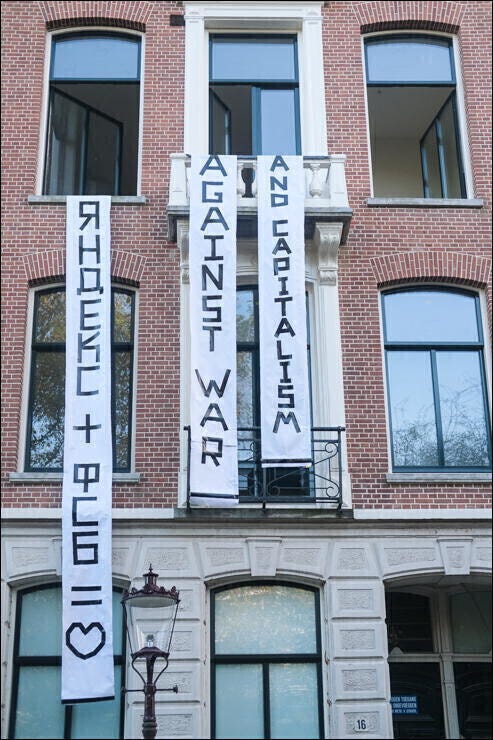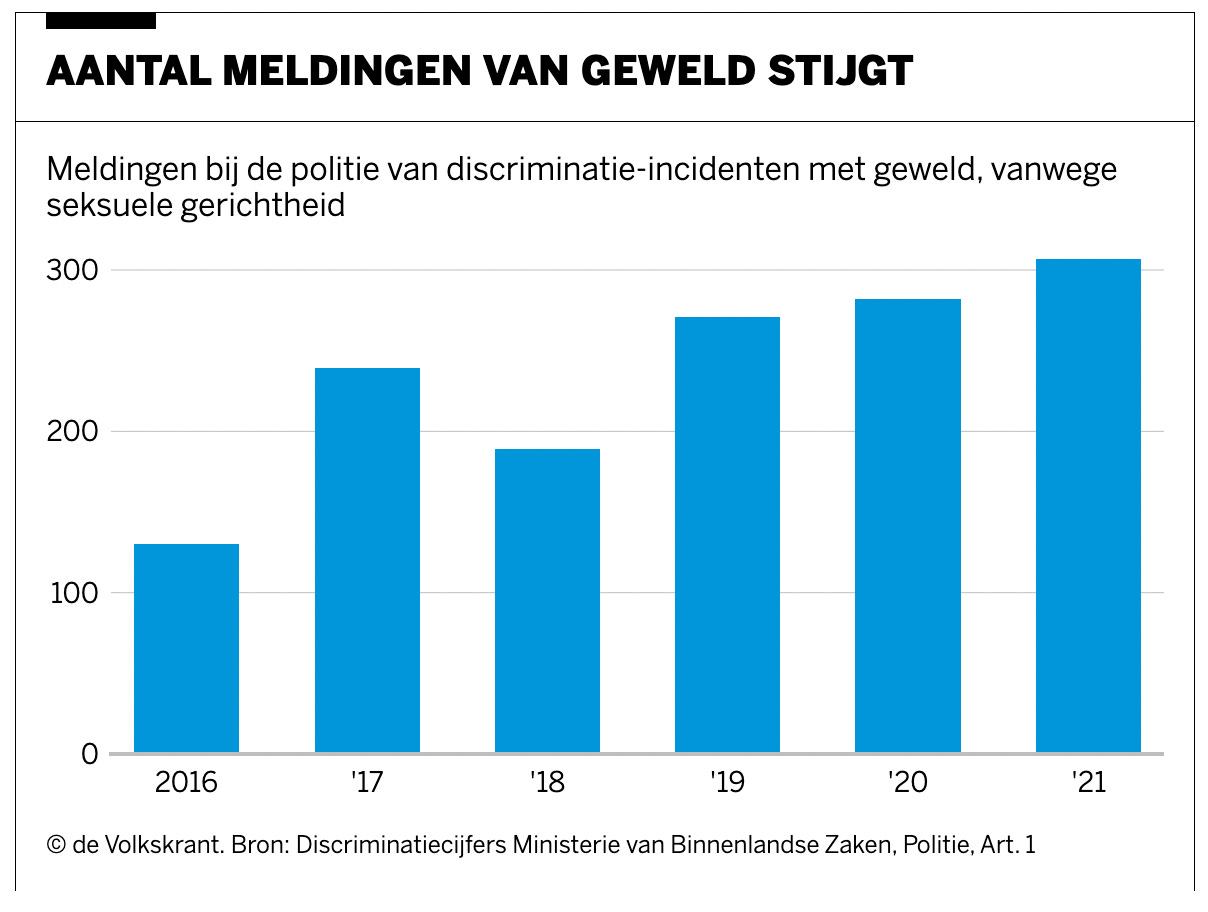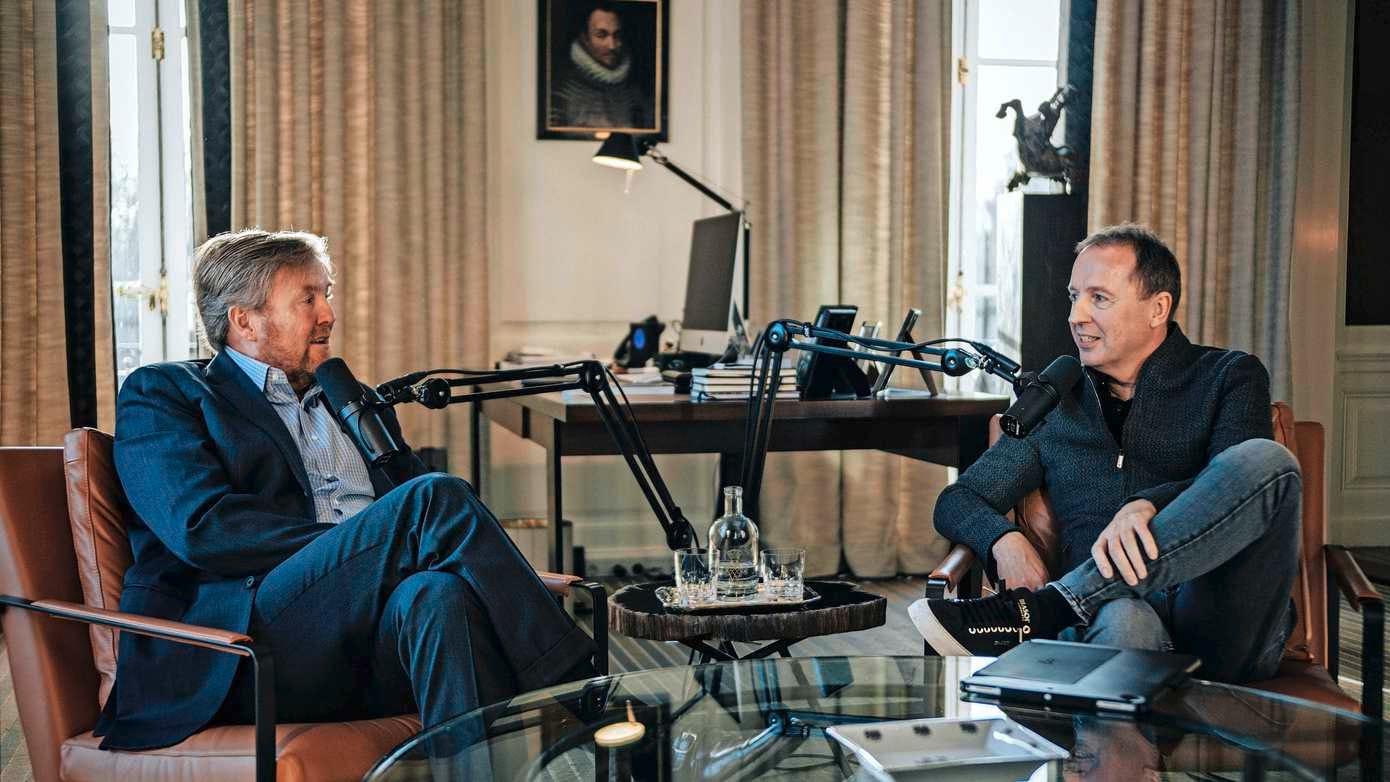Dutch Squatters vs. a Russian Billionaire
Plus: pubic school prayer rooms and violent homonationalism. Fun stuff at the end.
A group of squatters occupying a sanctioned Russian billionaire’s Amsterdam mansion were in court on Wednesday, arguing against their eviction.
The squatters have been occupying the place since October. A Dutch court granted them the legal right to stay considering that the owner, Arkadiy Volozh, the founder of Yandex, is is no longer allowed to enter the Netherlands.
With one legal loophole, that is: uninhabitable or unsafe conditions could force eviction.
A few days after the squatters changed the locks on the mansion, a man knocked on the door, claiming to be a Ukrainian refugee named Alex looking for a place to stay. Although the squatters clearly prohibited taking photos and videos of the mansion, Alex secretly captured images of their living conditions for months - loose wires, leaks, dirt, messy rooms. These images got back to Volozh and formed the basis for his appeal to the court this week.
According to the squatters:
We have no idea if [Alex] was hired from the start or if he was later approached and coerced, bribed, or intimidated into giving information. It goes without saying that we are absolutely disgusted by the exploitation of those affected by the war, regardless of how this situation came about.
A ruling in the case will be released in a month.
🍿 Dutch Background
Squatting in the Netherlands began during a housing shortage in the 1960s as a political statement against property speculators hanging onto vacant housing. Squatting was basically tolerated by the government - property owners were required to evict squatters by taking them to court - until squatting was criminalized in 2010. Another 2022 law made it even easier to get squatters out of properties by allowing judges to evict within three days.
In practice, criminalization hasn’t had much of an effect on squatting. It’s still happening all over the Netherlands, and the courts often rule in favor of the squatters, finding the owners of squatted properties “unable to demonstrate that their 'urgent interests' justify the confiscation of someone else's home.”
If you find this post interesting, your friends will too!
Prayer rooms in public schools - appropriate?
Muslim public school students are increasingly calling for prayer rooms, and public schools are struggling with how - and whether - they should be accommodated.
Currently this plays out school-by-school. Some schools want to ban praying, some allow students to cycle to nearby mosques to pray between classes, some allow students to choose a classroom to pray in at the end of the day. Some students pray secretly, in the hallways or under stairs, or outside.
An op-ed in the NRC lays out how other countries handle this issue.
In the 'French' model, in France and partly in Belgium, the neutrality of public schools is guaranteed by disallowing 'ostentatious religious symbols'. A prayer room is out of the question. That doesn't sound inclusive, but the principle is clear: equal monks, equal hoods. In the Anglo-Saxon world, religious signs are taken for granted. In the context of inclusiveness, there’s room for everyone in the inn. In Britain, students are allowed to wear a headscarf or turban – as long as it matches the school uniform. And silence annex prayer rooms are allowed at secondary schools.
Where are the Dutch on this, philosophically?
The Netherlands is the middle: public schools usually have no problems with religious symbols, but facilitating religious needs? That goes too far.
The Dutch system allows for religious schools, but with fifteen percent of Dutch kids identifying as Muslim - up from nine percent in 2010 - there are not nearly enough Islamic schools, if that would be the answer for some students.
The law doesn’t provide a ton of clarity here. According to a 2000 ruling, public schools are not obliged to provide a prayer room even if students request it. At the same time, schools cannot forbid students to pray.
Although the DENK party this month demanded action from parliament, a broad, definitive ruling seems unlikely; the issue will more likely continue to play out at the individual, school-by-school level.
And schools with large and vocal Muslim populations seem more likely to find accommodations for prayer than “endlessly playing cat-and-mouse with students” over the separation of church and state.
The roots of anti-gay violence
Last Saturday in Groningen, several employees of a gay bar in were assaulted after a drag show. The same day in Eindhoven, a group of twenty football hooligans stormed a meeting for LGBTI youth, tried to burn their rainbow flag, assaulted a volunteer, and called the kids “cancer gays” (kankerhomos). Last week, at a televised football game watched by 1.4 million viewers, fans heckled a player by chanting that he was gay - a common occurrence. Drag queens report feeling more unsafe than ever, and an anti-gay group has a protest against drag queens planned in Rotterdam on Sunday.
Rising number of reports of violence
Reports to the police of discrimination incidents involving violence due to sexual orientation
Attacks are rising. Yet, a spokesman for the COC (the oldest LGBT NGO in the world, based in Amsterdam), believes that the number of people who think negatively about homosexuality isn’t necessarily increasing.
That in itself is reassuring. But the small group that has a negative attitude towards us is getting louder. It often comes from an extremely conservative and orthodox groups... The fuss they consciously create has a clear effect. Words have consequences.”
American researchers have shown that far-right rhetoric spread by white nationalist groups, extremist influencers, and conservative politicians fuels anti-gay violence.
In the Netherlands, this rhetoric is often rooted in homonationalism. Dutch homonationalist politicians, like Geert Wilders and Thierry Baudet, or academics like Laurens Buijs, present themselves as accepting of homosexuality, but it’s a twisted tolerance, deployed as if “the presumed equality of gay citizens is among [society’s] notions that need protection” - against anti-gay Muslim migrants. Accepting gays is used as a cover for not accepting other groups.
According the COC, “words of hate lead to acts of hate.” They call for anti-gay chants at football stadiums to be banned and for anyone who supports the community to display the rainbow flag this weekend.
What to do about the politicians remains to be seen.
🥳 Leuke Dingetjes
Burning… something
This week in Madrid, Mia Nicolai and Dion Cooper, the duo representing the Netherlands in the Eurovision Song Contest next month, gave a very uncomfortable off-key performance of their entry song “Burning Daylight.”
Bummer, because the Netherlands won Eurovision in 2019 with “Arcade” by Duncan Laurence - and Laurence wrote “Burning Daylight.”
The Netherlands is currently in fifteenth place among bookmakers.
Dutch is impossible
On Tuesday, French President Macron came to the Netherlands for France’s first official state visit in 23 years. He attempted a speech in Dutch, which at one point the NOS captioned “unintelligible.”
The king laughed, just like every other Dutch person when I try to speak Dutch myself.
Now every last man on the planet has a podcast
Speaking of the koning, his new podcast “Through the Eyes of the King” is now available. In Dutch, obviously. If “distance is essential to the enchantment of the monarchy, to the sacred, mysterious and untouchable,” Marcia Luyten asks in Volkskrant, wtf is the king doing with a podcast?
A new album from Spinvis
'Oogstlied' is my fav track. Tom Waits-ish.








